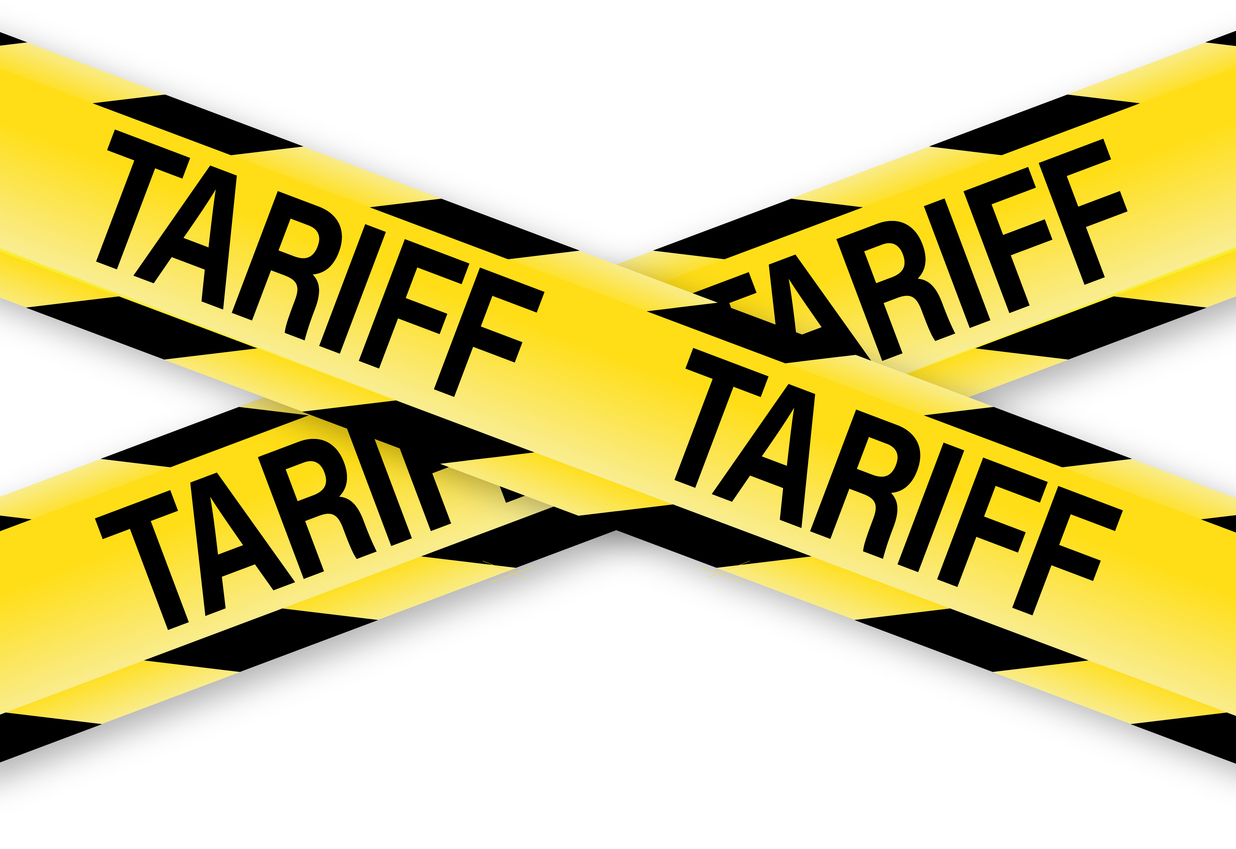China and the United States have announced tariffs affecting certain Canadian exports.
Manitoba farmers rely heavily on foreign export markets and the announcement of tariffs from China and United States is very concerning for farmers. China and the United States represent the top two export markets for Manitoba agriculture. These tariffs affect millions of dollars of Manitoba agricultural products with producers already experiencing the effects of tariffs through lower commodity prices.
KAP will continue to work with agricultural groups across Canada and with government to advocate on the tariff issue.
Our news release on March 4 highlighted the tariff issue.

FAQ
-
In 2025, U.S. President Donald Trump announced a 25 percent tariff on Canadian goods, with energy and potash receiving a 10 percent tariff. But applicable goods under the Canada-United States-Mexico Agreement (CUSMA) receive preferential treatment. This means that CUSMA compliant goods are subject to any additional tariffs. The exemption includes goods such as fertilizer, grains, oilseeds, livestock, meat cuts, bees, etc.
Following U.S. actions announcement, the Government of Canada applied tariffs to $59.8 billion of U.S. imports. The retaliatory tariffs involved various goods including steel and aluminum products, exercise equipment, hand tools, meats, dairy, pasta, alcohol, clothing, footwear, stoves, and firearms. Also, the federal government has imposed a 25 percent tariff on non-CUSMA-compliant American vehicles.
-
A tariff is a tax on foreign goods, and the importer usually pays this tax. Often importers will pass these costs onto the next buyer with the consumer paying higher prices. Government can use tariffs as an effective policy tool to protect domestic competition, the dumping of inexpensive foreign goods into the marketplace, for example. Countries may apply tariffs indiscriminately, thereby affecting imports and exports.
-
In February 2025, President Donald Trump signed a presidential order authorizing 25 percent tariffs on Canadian goods. The reasons: illegal border crossings and the flow of illegal drugs into America. The inclusion of tariffs for foreign vehicles relates U.S. national security threats and a lack of positive results the from Canada-United States-Mexico Agreement. The tariffs represent a larger U.S. strategy to bring additional manufacturing jobs back to America.
-
No, CUSMA allows countries to make certain exceptions. According to Article 32.3 of CUSMA, signatories can apply tariffs involving national security concerns.
-
Trade has been a high priority for KAP. Manitoba farmers rely heavily on international markets when selling their commodities. Given this dependence, KAP has had numerous meetings with elected officials and government staff, highlighting the need for an effective response with a quick resolution. We have also met with industry and producer groups to further understand their concerns. KAP sent both farmers’ concerns and recommendations to the provincial and federal governments. In April 2025, Premier Kinew said, “We thought long and hard on it, about it, and we’re going to do every single thing that KAP has brought forward.” Our organization will continue to collaborate with government while working towards solutions.
Below are some of the recommendations sent to government.
- Expedite permitting processes across all departments to facilitate the expansion of value-added production and processing (e.g., hog barn expansions, building permits, grain drying applications, motor carrier permits).
- Request the Government of Canada allocate additional CFIA inspection resources for both processed products and live animals crossing the Canada / U.S. border.
- Continue lobbying efforts in Washington, D.C., and other important U.S. states that buy significant amounts of Manitoba agricultural products. This should be done in collaboration with other provinces, such as Alberta and Saskatchewan, and affected members of Manitoba’s agriculture value chains.
- Continue to work with other prairie provinces to leverage shared interests and resources, as well as remove internal trade barriers, especially for value-added food products.
- Survey current infrastructure requirements and make appropriate expansions for both internal and export trade (e.g., facilitating expansion of agriculture and food trade to the European Union and the United Kingdom).
- Provide additional investments in local markets and align policies to increase demand and expand value-added capacity (e.g., biofuels, hog processing, abattoirs).
- Prioritize the Provincial Nominee Program to ensure adequate labor for the agricultural sector.
- Work with the federal government to decide how funds from retaliatory tariffs should be appropriately distributed to each sector.
-
American and Chinese buyers play an essential role for Manitoba producers. Without these two countries, Manitoba exporters would need to fill a $5.72 billion trade gap—based on 2024 provincial export values. Canola oil, soybeans, wheat, pork, canola seeds, beef, canola oil, and potatoes are popular exports to these two countries. Both countries provide Manitoba farmers with needed animal feed preparations and feed supplements, with the United States supplying nearly all phosphate used each year.
-
KAP strongly opposes the recent tariffs applied by the United States and China. No one benefits from the current tariff situation. But we believe that a rules-based trading system benefits the agricultural sector. Through international trade, Canada has become a leader in agri-food exports, placing 7th globally. In 2024, China and the United States accounted for 55 percent of Manitoba’s total agri-food exports. Growth and productivity in Manitoba’s agricultural sector depend on international trade. KAP will continue to highlight the importance of a rules-based trading system, market development, and tariff removal.
-
Canada has 15 free trade agreements in force. Each free trade agreement is unique and creates various trade volumes. And each country will have a different demand for Canadian agricultural products. In 2024, Canada exported $596 billion in goods to America, $1.64 billion to Peru, $717 million to Chile, and $509 million to Panama. Forming an agreement between two countries takes time. For example, negotiations for a foreign investment agreement between Canada and Bahrain began in 2009 and are still ongoing.
-
This link lists all the goods affected.
-
Both federal and provincial supports exist for producers. The current support includes AgriStability, AgriInvest,
Advance Payments Program and the Agricultural Trade Commissioner Service.
The federal government recently increased the Advance Payments Program’s interest-free limit to $250,000, and Farm Credit Canada has created a Trade Disruption Customer Service Program.
The Government of Canada has proposed to increase the AgriStability compensation rate from 80 to 90 percent. The Manitoba government has committed $10 million for the AgriStability increase—other provinces still need to decide about AgriStability funding increases.
-
Unknown. Trade negotiations, American and Chinese trade policy, court rulings, and additional retaliatory tariffs can affect the duration. The longer a country applies a tariff, the higher the probability of the tariff becoming long lasting. For example, the United States’ Proclamation 3565 added a 25% tariff to foreign-made trucks. This tariff began in 1964 and continues today.

